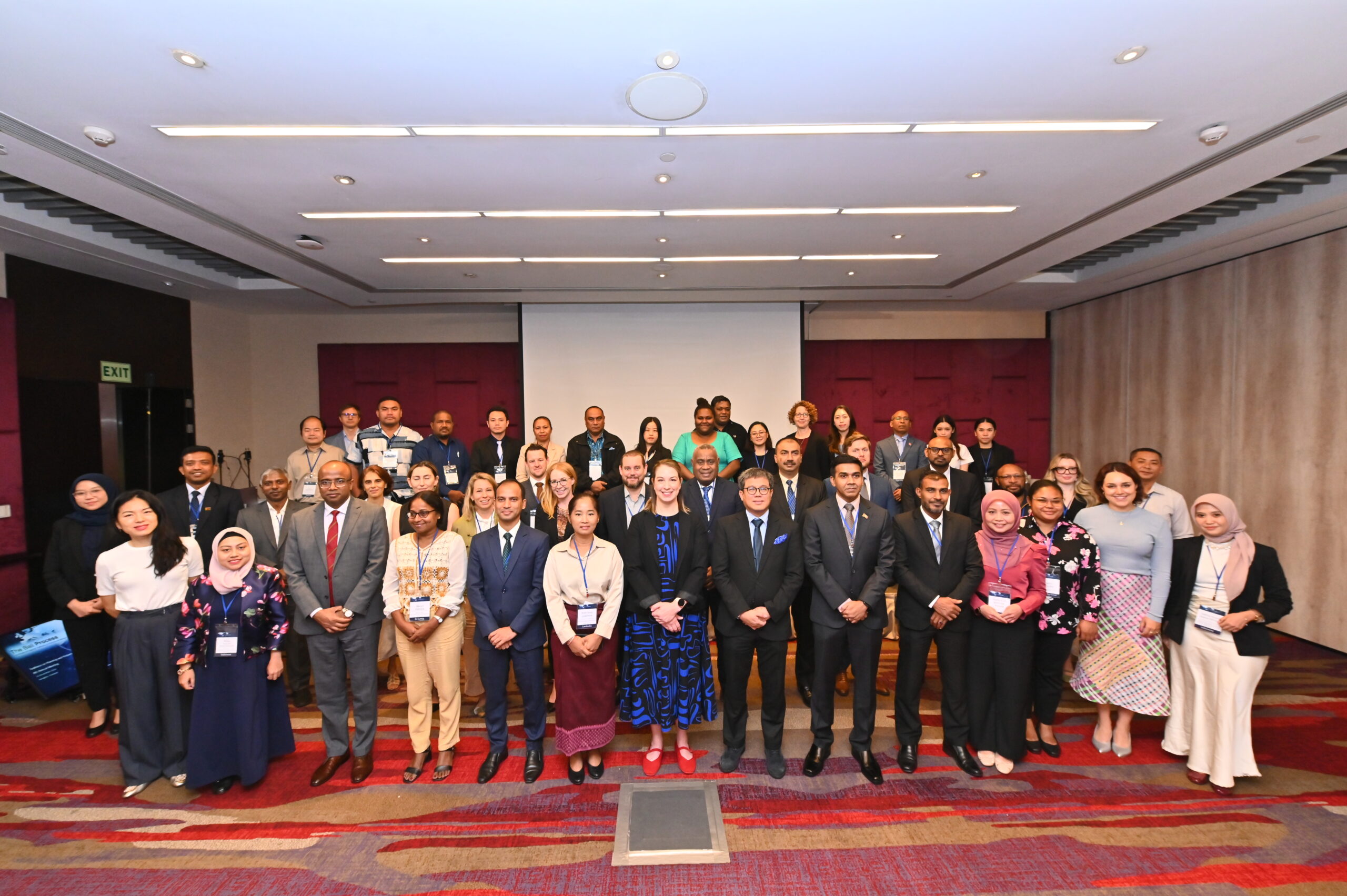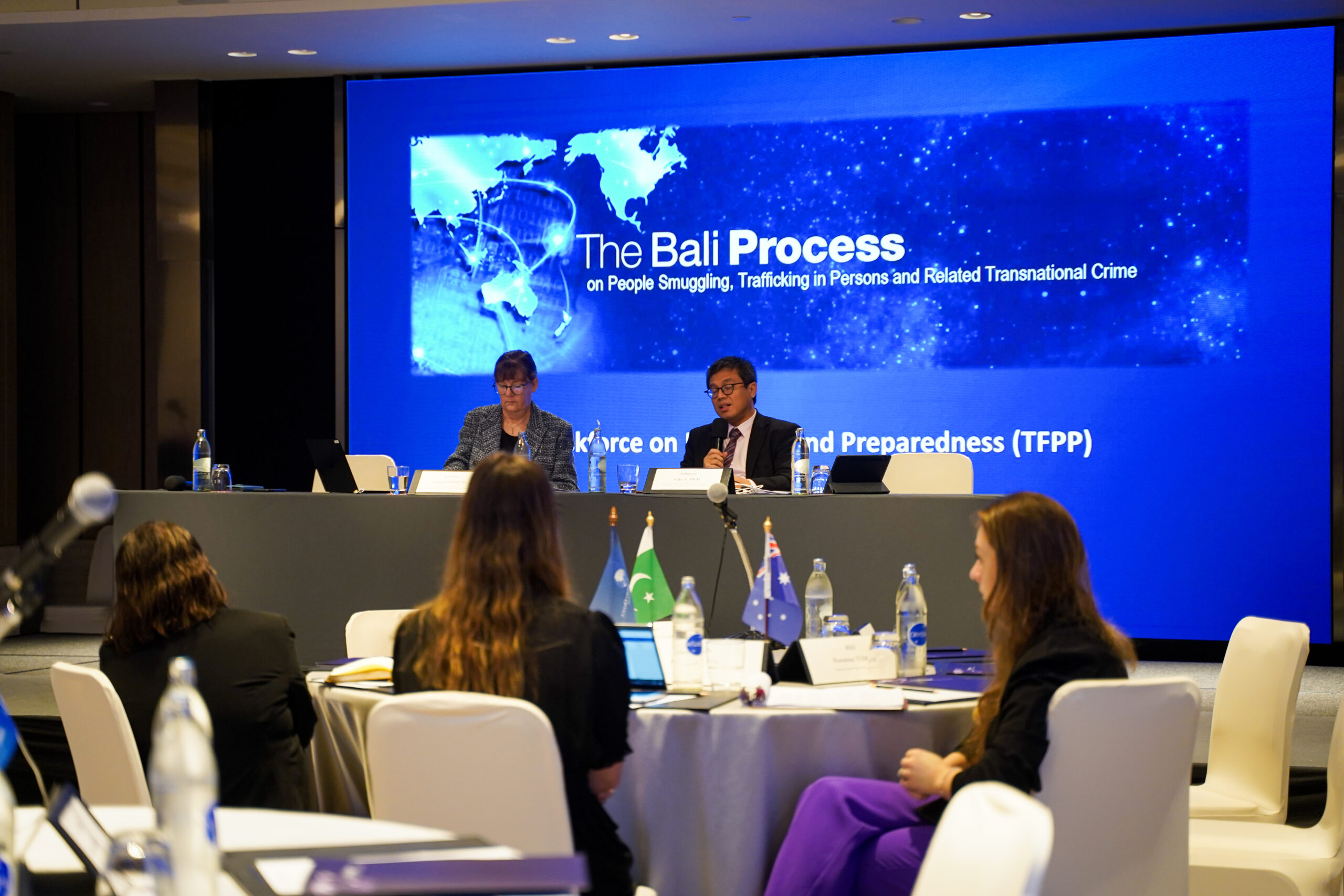
The Bali Process Task Force on Planning and Preparedness was established in 2017 to strengthen the region’s capacity to respond to irregular migration events and to support collaboration across Member States and Organisations. Co-chaired by Australia and Indonesia, the Task Force works to better understand and mitigate emerging drivers of migration, while ensuring effective and coordinated responses to urgent forced migration situations.
The purpose of the Task Force is to develop early warning capabilities and enhance the ability of officials to coordinate operational responses during large-scale influxes of irregular migrants. It supports the Bali Process Consultation Mechanism by improving cooperation among operational officials and providing a practical forum for Member States and Organisations to address irregular migration challenges.
The Task Force also promotes collaboration through the sharing of best practices at national, bilateral, and regional levels, recommending measures to harmonise detection, search and rescue, disembarkation, and shelter management in the context of mass displacement.
Priorities and Regional Progress
The Task Force on Planning and Preparedness, co-chaired by Australia and Indonesia, brings together members of the Bali Process Ad Hoc Group to strengthen regional cooperation on irregular migration challenges. Its current priorities include:
- Maintaining a strong focus on regional responses to irregular maritime migration
- Addressing the growing use of technology by organised criminal groups and online scam centres
- Ensuring tailored support for the specific vulnerabilities of women and children
- Developing activities that account for health-related contingencies
The establishment of the Task Force was endorsed at the Sixth Ministerial Conference in Bali (23 March 2016) in response to urgent irregular migration events in the region, including the 2015 Andaman Sea refugee crisis. Since then, its work has focused on prevention efforts to reduce unsafe sea migration, the development of regional standard operating procedures, the establishment of rescue coordination centres, the delivery of shared training initiatives, and the strengthening of direct contact lines between coordination centres and national focal points.

Policy Experts Group
The Policy Experts Group (PEG) of the Task Force on Planning and Preparedness (TFPP) provides Bali Process members with a dedicated platform to analyse emerging challenges, share expertise, and recommend practical solutions to strengthen regional responses to irregular migration, people smuggling, trafficking in persons, and related transnational crimes. At its recent discussions, the PEG identified four key challenges hindering efforts to combat trafficking and exploitation, particularly in relation to online scam centres:
- Limited law enforcement access to the physical locations of scam centres
- Barriers to cross-border cooperation in investigation and prosecution due to lengthy processes and jurisdictional discrepancies
- An unregulated cyber environment that enables money laundering, underground banking, and other cybercrimes facilitating victim exploitation
- The persistent role of corruption and complicity in the region
The PEG emphasised plays a vital role in advancing regional cooperation under the Bali Process. By identifying systemic challenges and promoting coordinated, cross-sectoral responses, the PEG reinforces the importance of collective action to address the complex and evolving threats of irregular migration, people smuggling, trafficking in persons, and related transnational crimes. Its work ensures that members are better equipped to overcome barriers, strengthen law enforcement capacity, and protect vulnerable individuals across the region.

Taskforce on Planning and Preparedness Events
All









